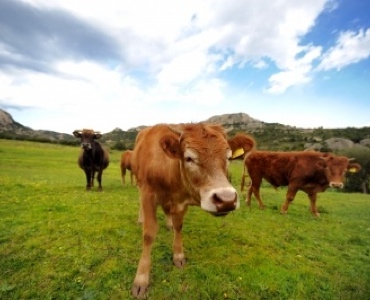
WTO rules against COOL and sides with Canada and Mexico
Food in Canada
Exporting & Importing Meat &Poultry Agriculture and Agri-Food Canada COOL country-of-origin labeling international trade livestock producers World Trade Organization WTOThe WTO has ruled for the fourth and final time against the U.S.'s COOL measure; since the measure is still in place Canada and Mexico seek WTO authorization to retaliate against U.S. exports

Geneva, Switzerland – Not for the first time or the second or third, but for the fourth time the World Trade Organization (WTO) has ruled against the U.S. on its Country of Origin Labelling (COOL) rule.
On May 18, the WTO handed down its final and fourth ruling, which reaffirms Canada’s position that the COOL measure is discriminatory against Canadian cattle and hogs.

“It is time that the negative impact of COOL on Canada’s exported livestock is recognized by Congress and that they fix the legislation.”
Agriculture and Agri-Food Canada (AAFC) says in response to this latest ruling, and in accordance with international trade rules, Canada will seek WTO authorization to retaliate against U.S. exports.
“The WTO has been clear – the U.S. administration must end its discriminatory COOL policy that is causing hurt to beef and pork industries on both sides of the border,” says Gerry Ritz, Canada’s minister of Agriculture.
“Our government is now seeking authority from the WTO to impose retaliatory measures against U.S. exports. We will continue to defend the interests of our cattle and hog sectors while protecting all hardworking Canadians through this process.”
The North American Meat Institute also welcomed the WTO’s ruling.
The institute said in a statement that “after years of grappling with this costly and onerous rule – a rule that the U.S. Department of Agriculture’s own economic analysis says is a burden on livestock producers, meat packers and processors with no consumer benefit – it is clear that repealing the statute is the best step forward.”
What U.S. consumers want to see on labels
According to the institute, new research from the International Food Information Council (IFIC) Foundation shows country of origin information comes in ninth in a list of 11 pieces of labelling information that consumers use when choosing a food product.
In addition, says the institute, the percentage of consumers saying they use COOL labels has declined from 29 per cent in 2013 to 26 per cent in 2014 to just 15 per cent in 2015. In contrast, half of consumers look for expiration dates and the nutrition facts panel.
Joint statement from Canada and Mexico
In a joint statement from Foreign Affairs, Trade and Development Canada, Ed Fast, minister of International Trade; Ritz; Ildefonso Guajardo Villarreal, Mexico’s secretary of Economy; and Enrique Martínez, Mexico’s secretary of Agriculture, Livestock, Rural Development, Fisheries and Food; said:
“Once again, the WTO has confirmed Canada and Mexico’s long-standing position that the United States’ mandatory COOL requirements for beef and pork are blatantly protectionist and are a violation of the United States’ international trade obligations.
“The amended COOL measure, which causes Canadian and Mexican livestock and meat to be segregated from those of U.S. origin, is damaging to North America’s supply chain and is harmful to producers and processors in all three countries.
“In light of the WTO’s final decision, and due to the fact that this discriminatory measure remains in place, our governments will be seeking authorization from the WTO to take retaliatory measures against U.S. exports.
“We call on the U.S. to repeal COOL legislation and comply with its international obligations.”
Image of grilled pork sausages courtesy of amenic181 at FreeDigitalPhotos.net
Print this page